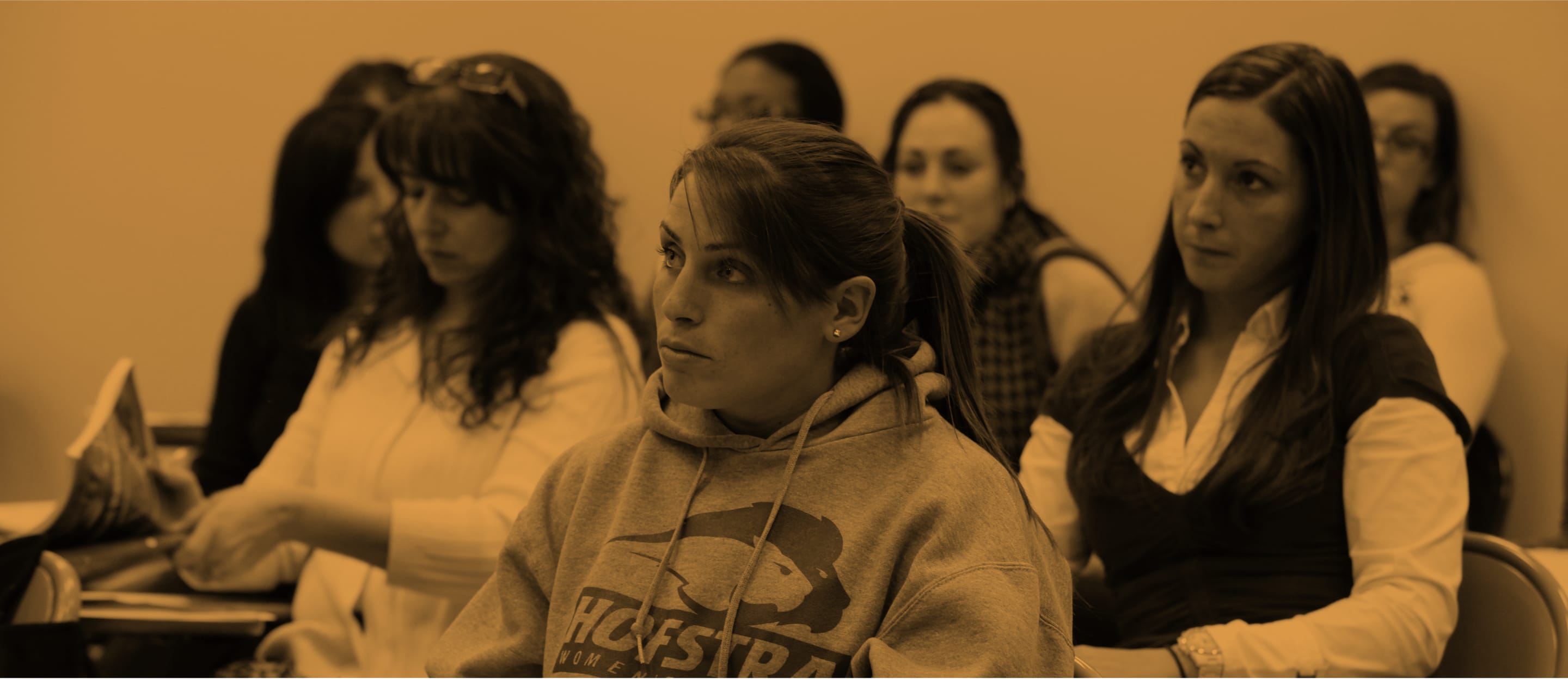
Jewish Childhood Education & Special Education
The only one of its kind, our new master's program in Jewish Childhood Education & Special Education, led by Jewish special education expert, Dr. Jeff Lichtman, will welcome its inaugural cohort in Fall 2019. Geared towards educators in the Jewish community and with a unique focus on Jewish education, candidates will be prepared to work in a wide variety of teaching and leadership positions in schools and other special education settings. Graduates of this two-year master of science in education program will be eligible for dual NYSED licensure in Special Education and Education, upon completing all NYSED requirements.
This program will provide ongoing professional development and support to its graduates as well as career counseling to help each graduate achieve their professional goals in balance with their life goals.
WHAT YOU’LL LEARN
Taught by leading practitioners in the field, courses are built on empirically-based theory and innovative practice in educational methodology. Course offerings include: understanding learning disabilities and evidence-based intervention; positive and successful classroom management; and teaching of Hebrew reading (Kriah) effectively. Emphasis will be placed on understanding the student and his context, in order to provide meaningful and engaging instruction.
ADMISSIONS & CONTACT
Applicants must follow the general admission requirements & guidelines for the Graduate School of Education. Any questions? Please reach out to Dr. Jeff Lichtman, program chair.
COURSE SCHEDULE
FALL 2019
JESN 600: Philosophy and Practice of Jewish Education and Jewish Special Education
This course explores how philosophy and history inform - and should inform - the practice of Jewish education/Special education. It focuses on how early Greek and Jewish writings and perspectives on education and special education relate to modern educational theory and practice, and how practical and philosophical developments in the modern period have shaped education and Jewish education. Attention is also directed to current practice and debates on meeting the wide range of educational and social-emotional needs of all students, as well as the role that technology plays in society and in the schoolroom.
JESN 691: Methods in Teaching Traditional Jewish Texts
This course focuses on the pedagogical principles and classroom practices essential for successful teaching of traditional Jewish texts to diverse learners. Course topics include application of theoretical knowledge and instructional strategies to teaching texts to students with various learning styles and challenges; development of skills required to both create and evaluate instructional materials; critical approaches to understanding, use, and misuse of educational technology; and the assessment of student learning in text-based classes. Students are exposed to and engage with evidence-based methods of instruction and critically examine the concept that instruction should be evidence-based. There is a deep focus on application of concepts and skills in real-life settings;
WINTER SESSION 2020
JESN 602: Teaching Students with Disabilities in Jewish Schools
This course focuses on developing an understanding of different disabilities and their effect on learning within a variety of settings including the Jewish Day School. Current approaches to teaching children with disabilities based on current theories, and state and federal special education laws and regulations; will be closely examined. Inclusion and the concept of the least restrictive environment; early intervention; special education curriculum modifications, classroom management, and use of technology; planning and designing co-teaching and collaborative work with other teachers; developing partnerships, including with the family, for the benefit of students with disabilities; transition services and employment; education challenges and instructional approaches for children with cognitive deficits, physical and sensory impairments, language delays, emotional disturbance, and learning disabilities; working with children with autism; application of principle of response to intervention and differentiated instruction will be reviewed. Students are exposed to evidence-based instructional methods and critically examine the concept that instructions should be evidence-based.
SPRING SESSION 2020
JESN 640: Assessment and Remediation of Individual Learning Differences
This course focuses on:
- assessment in general education and special education of individual differences in intelligence, learning potential, personality, motivation, and student achievement
- management of data from assessment and monitoring of student progress
- characteristics of standardized tests
- the role of educational testing in program design and informing instruction, particularly for students with disabilities, including children with autism
- use of achievement tests
- introduction to dynamic (or interactive) assessment
- differences between static and dynamic assessment
- the use of teacher-made, informal tests
- the opportunity to observe and practice use of achievement tests and/or curriculum-based assessment approaches in the classroom
- testing concepts
- the application of assessment to the classroom setting.
The goal of the course is to relate assessment principles to standards-based instruction, identify appropriate performance standards, effectively communicate these standards, and provide appropriate feedback to students. Included are planning of summative assessments, the construction and use of multiple choice, true-false, and essay type items, performance assessments and portfolios, student observation techniques and rating scales, and the use and interpretation of standardized test data.
JESN 680: Arts
TBA